
The Michigan Fireworks Law 2024 governs the sale, use, and safety of fireworks, building on the Fireworks Safety Act of 2012. It outlines legal fireworks types, permitted dates, and safety measures to ensure public welfare and environmental protection.
1.1 Overview of the Fireworks Safety Act of 2012
The Fireworks Safety Act of 2012, also known as Public Act 256 of 2011, legalized the sale, possession, and use of consumer fireworks in Michigan. It established regulations to ensure public safety, outlining permitted times for fireworks use and prohibitions for certain devices. The Act aimed to reduce cross-border purchases and promote responsible usage, balancing recreational enjoyment with community safety. It also set the foundation for future updates, including the 2024 regulations, which refine permissible dates and safety standards.
1.2 Key Updates in the 2024 Fireworks Regulations
The 2024 Michigan Fireworks Regulations introduce specific updates to enhance safety and clarity. Key changes include the extension of permitted fireworks use from June 29 through July 5, 2024, with designated time frames. Additionally, there are stricter enforcement measures for illegal fireworks and increased penalties for violations. The updates also emphasize environmental considerations and noise restrictions. These adjustments aim to balance public enjoyment with community safety and environmental protection, ensuring responsible fireworks use across the state.
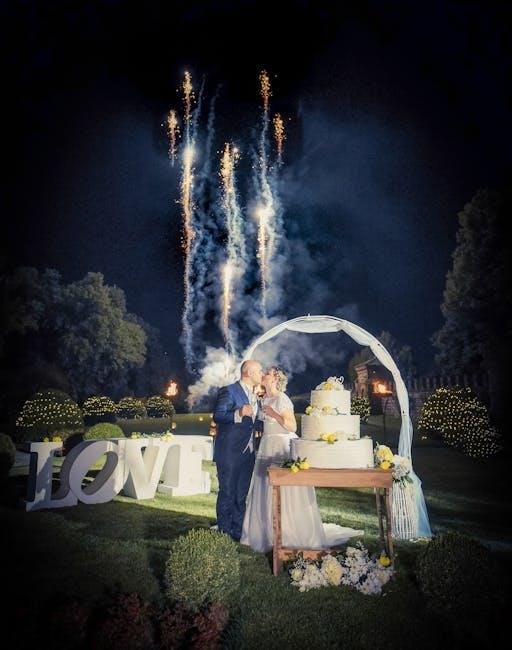
Legal Fireworks in Michigan
Michigan law permits the sale and use of consumer fireworks, including low-impact and novelty items like sparklers, snakes, and poppers, under specific regulations and safety guidelines.
2.1 Definition of Consumer Fireworks
Consumer fireworks, as defined under Michigan law, include devices like ariel shells, fountains, and other explosives designed for recreational use. These fireworks must meet Consumer Product Safety Commission (CPSC) standards and are intended for personal, non-commercial use. They are distinct from professional fireworks, which require special licensing. The Fireworks Safety Act of 2012 allows their sale and use in Michigan, with specific regulations to ensure safety and compliance. Users must adhere to state and local laws when purchasing and igniting these products.
2.2 Low-Impact and Novelty Fireworks
Low-impact and novelty fireworks include items like sparklers, snakes, snaps, and poppers. These devices produce minimal noise and are generally safe for all ages. Michigan law does not classify them under consumer fireworks, making them exempt from strict regulations. They are legal for sale and use throughout the year, without specific time restrictions. Novelty fireworks are popular for their simplicity and safety, often used during celebrations and gatherings. Their availability contributes to the festive atmosphere while adhering to state safety standards.
2.3 Prohibited Fireworks Under Michigan Law
Michigan law prohibits certain high-hazard fireworks, including firecrackers, cherry bombs, and M-80s, due to their potential for harm. These devices are classified as illegal under state regulations. Prohibited fireworks are defined as those that explode or emit a flame, posing significant risks of injury or property damage. Violating these prohibitions can result in fines and penalties. The ban ensures public safety and aligns with federal safety standards. Residents are encouraged to familiarize themselves with legal alternatives to avoid legal consequences and ensure responsible celebrations.
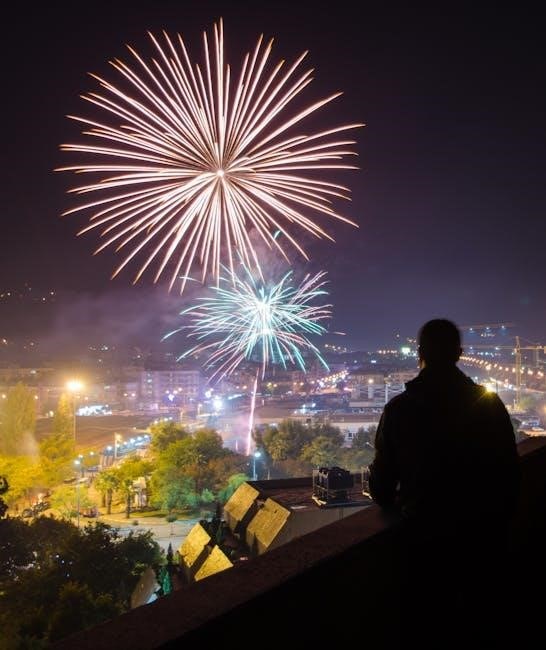
Permissible Dates and Times for Fireworks Use
Fireworks can be used from June 29 through July 5, 2024, between 11 a.m. and 11:45 p.m., and on New Year’s Eve from 11 a.m. to 1 a.m.
3.1 June 29 Through July 5, 2024
Fireworks are permitted from June 29 to July 5, 2024, between 11 a.m. and 11:45 p.m. This period includes Independence Day celebrations and extends through the following days, allowing residents to enjoy fireworks during peak summer festivities. However, local ordinances may further restrict usage, so it is essential to check municipal rules before use. This timeframe is designed to balance public enjoyment with safety and noise considerations, ensuring responsible use during holiday celebrations.
3.2 New Year’s Eve Fireworks Regulations
Fireworks are permitted on New Year’s Eve from 11 a.m. on December 31 to 1 a.m. on January 1. This allows celebrations into the early hours of the new year. Only consumer-grade fireworks, such as sparklers and smoke bombs, are allowed. They must meet Consumer Product Safety Commission (CPSC) standards. However, local ordinances may impose stricter regulations, so it is crucial to check municipal rules before use.
3.4 Other Permitted Holidays and Dates
Michigan law allows fireworks use on specific holidays beyond July 4th and New Year’s Eve. These include Memorial Day weekend (last Saturday and Sunday in May), Labor Day weekend (first Saturday and Sunday in September), and other locally designated celebrations. Fireworks can typically be used from 11 a.m. to 11:45 p.m. on these days. However, local ordinances may impose stricter regulations, so it’s essential to verify municipal rules before use to ensure compliance with both state and local laws.
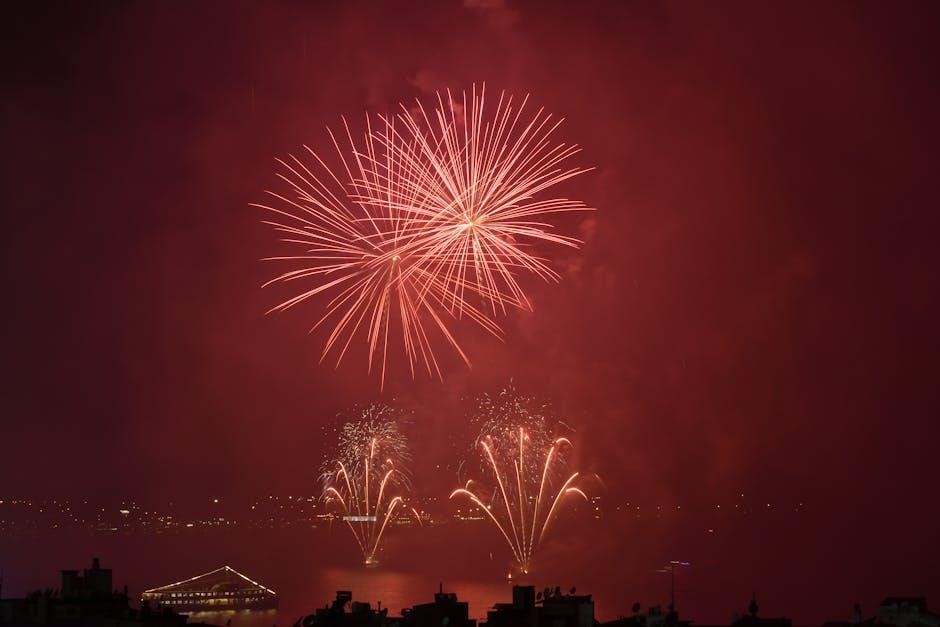
Safety Regulations and Precautions
Michigan law requires proper storage and handling of fireworks to prevent accidents. Individuals must be at least 18 to purchase fireworks and use them sober. Local noise ordinances must be followed to ensure community safety and harmony.
4.1 Storage and Handling of Fireworks
Proper storage and handling of fireworks are crucial for safety. Store them in a cool, dry place away from flammable materials. Keep fireworks in their original packaging and secure them when not in use to prevent unauthorized access. NFPA 1123 guidelines must be followed for safe handling and storage. Always check local regulations and ensure packaging is intact to maintain stability and prevent accidental ignition. Proper precautions ensure safe use and compliance with Michigan’s fireworks laws.
4.2 Age Restrictions for Purchasing and Using Fireworks
Under Michigan law, individuals must be at least 18 years old to purchase and use consumer fireworks. This age restriction ensures legal and safe handling. Retailers must verify the buyer’s age. Violations can lead to fines and penalties, emphasizing the importance of compliance with state regulations.
4.3 Prohibition of Fireworks Under the Influence of Alcohol or Drugs
Michigan law strictly prohibits the use of fireworks by individuals under the influence of alcohol or drugs. This regulation aims to reduce the risk of accidents and injuries. Violators face legal consequences, including fines and penalties. Public safety is a top priority, ensuring responsible and controlled fireworks use.
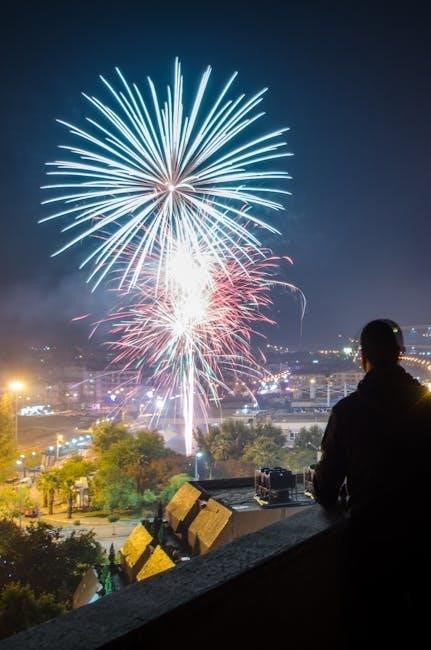
Local Ordinances and Municipal Regulations
Michigan municipalities may enact stricter fireworks regulations than state law, varying by locality. Residents must comply with local rules to avoid penalties.
5.1 Variations in Local Fireworks Laws
Local ordinances in Michigan often impose stricter fireworks regulations than state law. Some municipalities completely ban certain types of fireworks, while others restrict usage to specific hours or days. For instance, cities like Detroit and Ann Arbor may have more stringent noise restrictions or broader bans on consumer fireworks. Additionally, some townships may require special permits for fireworks displays. It’s crucial for residents to check their local laws to ensure compliance and avoid fines. These variations highlight the importance of understanding both state and local regulations before using fireworks.
5.2 Obtaining Permits for Public Fireworks Displays
Public fireworks displays in Michigan require permits from local authorities. Applicants must submit detailed plans, including the location, time, and type of fireworks to be used. The Bureau of Fire Services oversees the process, ensuring compliance with state and local safety standards. Permits are typically granted for specific events, such as festivals or celebrations, and require proof of liability insurance. Inspections before and after the display are mandatory to ensure safety protocols are followed. Failure to obtain a permit can result in fines and legal action.
Legal Consequences of Violations
Violating Michigan’s fireworks laws can result in fines, penalties, and legal action. Offenders may face criminal charges and liability for damages or injuries caused by illegal fireworks use.
6.1 Fines and Penalties for Illegal Fireworks Use
Illegal fireworks use in Michigan can result in significant fines and penalties. Violators may face criminal charges, with fines ranging from hundreds to thousands of dollars. Repeat offenses escalate penalties, reflecting the seriousness of the violations. Additionally, individuals may be held liable for damages or injuries caused by improper fireworks use. Legal consequences emphasize the importance of adhering to state and local regulations to ensure safety and compliance with the law.
6.2 Liability for Damages or Injuries Caused by Fireworks
Individuals using fireworks in Michigan may be held liable for damages or injuries caused by their misuse. This includes financial responsibility for medical expenses, property damage, or other related costs. Liability extends to negligence or reckless behavior, emphasizing the importance of adhering to safety guidelines. Civil lawsuits may also arise if fireworks-related incidents result in harm to others or their property, underscoring the legal and financial risks of improper fireworks use.

Licensing and Retail Sales
Retail sale of fireworks in Michigan requires a license from the Bureau of Fire Services, ensuring compliance with inspections, training, and storage regulations.
7.1 Requirements for Retail Fireworks Licenses
To sell fireworks in Michigan, retailers must obtain a license from the Bureau of Fire Services. The application process includes submitting required documents, paying fees, and passing inspections. Retailers must comply with state and local fire codes, ensure proper storage of fireworks, and provide proof of liability insurance. Additionally, staff handling fireworks must complete safety training. Licenses are typically valid for one year and must be renewed annually. Failure to meet these requirements can result in penalties or license revocation.
7.2 Inspections and Compliance for Retailers
Retailers selling fireworks in Michigan must undergo regular inspections by the Bureau of Fire Services to ensure compliance with state regulations. Inspectors verify proper storage, signage, and handling of fireworks. Retailers must maintain up-to-date records and adhere to NFPA standards. Failure to comply with safety guidelines or misrepresentation of products can result in fines, penalties, or license suspension. Compliance checks are conducted annually, and retailers must be prepared to demonstrate adherence to all state and local fire codes to avoid enforcement actions and ensure public safety.

Public Fireworks Displays
Public fireworks displays in Michigan require permits and must adhere to NFPA 1123 standards. Licensed professionals must conduct the shows with safety measures in place to protect attendees and property.
8.1 Regulations for Organizing Public Displays
Organizing public fireworks displays in Michigan requires a permit from local authorities and adherence to NFPA 1123 standards. A licensed pyrotechnician must oversee the event, ensuring safety protocols are met. The display must be inspected beforehand, and liability insurance is mandatory. Public safety measures, such as crowd control and emergency access, must be in place. The display must not cause environmental harm or excessive noise. Compliance with state and local ordinances is essential to avoid penalties and ensure a safe, enjoyable experience for attendees.
8.2 Safety Standards for Professional Fireworks Shows
Professional fireworks displays must comply with NFPA 1123 standards, ensuring safe setup, storage, and execution. Pyrotechnicians must hold valid certifications, and all materials must meet federal safety guidelines. A comprehensive safety plan, including emergency procedures and crowd control, is required. Regular inspections by local fire authorities are mandatory to ensure compliance. The use of unauthorized or hazardous materials is strictly prohibited. Compliance with these standards minimizes risks, protecting both participants and spectators during public fireworks exhibitions.
Environmental and Noise Considerations
Michigan fireworks laws address environmental and noise impacts, restricting fireworks use during quiet hours and requiring clean-up of debris to minimize ecological disruption and disturbance.
9.1 Impact of Fireworks on the Environment
Fireworks can harm the environment by releasing pollutants like particulate matter, heavy metals, and nitrogen oxides into the air and water. Michigan law emphasizes reducing environmental impact by requiring proper disposal of fireworks debris and adherence to state and federal regulations. The use ofconsumer fireworks must comply with CPSC standards to minimize ecological damage. Local ordinances may also restrict fireworks in sensitive areas to protect wildlife and natural habitats, ensuring sustainable celebrations while preserving Michigan’s natural beauty.
9.2 Noise Restrictions and Quiet Hours
Michigan law enforces noise restrictions to balance celebrations and public peace. Fireworks use is generally prohibited after 11:45 PM and before 11:00 AM to maintain quiet hours. Exceptions apply during permitted holidays like July 4th and New Year’s Eve. Local ordinances may further restrict noise levels in residential areas, especially in Silence Zones near hospitals, schools, and churches. Violations can result in fines, ensuring community harmony while allowing festive celebrations within legal boundaries.
Resources for Further Information
- Mi.gov: Official Michigan government website provides detailed fireworks laws and updates for 2024.
- Local municipality websites: Check for specific ordinances and permits required in your area.
- Fireworks Safety Act PDF: Downloadable guide outlining consumer fireworks regulations and safety tips.
10.1 Michigan State Government Publications
Mi.gov offers official publications on Michigan fireworks law, including the 2024 Fireworks Safety Act PDF. These documents detail legal standards, safety guidelines, and regulatory updates. The Michigan State Government also provides downloadable guides and manuals for consumer fireworks use, ensuring residents can access accurate and up-to-date information. Additionally, the Bureau of Fire Services publishes annual updates and safety tips to promote responsible fireworks usage across the state.
10.2 Local Municipality Fireworks Ordinances
Local municipalities in Michigan often have specific fireworks ordinances that may differ from state law. Cities like Detroit and Ann Arbor have implemented stricter regulations, such as limiting fireworks use to certain hours or banning them entirely in densely populated areas. Residents should consult their local government websites or offices for detailed information. Additionally, some municipalities require permits for public fireworks displays, ensuring safety and compliance with community standards. Staying informed about local rules is essential to avoid fines and ensure responsible fireworks use.
10.3 Fireworks Safety Guides and Manuals
Fireworks safety guides and manuals are crucial resources for understanding proper usage and legal requirements. The Michigan State Government publishes detailed guides outlining safety precautions, storage tips, and environmental considerations. These materials emphasize responsible handling, particularly for consumer fireworks, to prevent accidents and injuries. Additionally, manuals often include best practices for disposal and noise reduction. Many are available online or through local municipalities, ensuring accessibility for all residents. These resources are essential for anyone using fireworks to comply with the law and ensure a safe celebration.
The Michigan Fireworks Law 2024 ensures safety and compliance, balancing enjoyment with responsibility. Adhering to its guidelines helps protect communities and promotes a secure festive environment.
11.1 Summary of Key Points in Michigan Fireworks Law 2024
The Michigan Fireworks Law 2024 updates regulations on consumer fireworks, permissible dates, and safety measures. It emphasizes legal fireworks types, restricted times, and penalties for violations, ensuring public safety and environmental protection while allowing responsible celebration.
11.2 Encouragement to Follow Safety Guidelines
Always prioritize safety when using fireworks to prevent accidents and ensure enjoyable celebrations. Follow Michigan’s guidelines, such as keeping water nearby, avoiding illegal fireworks, and supervising children. Check local ordinances for specific rules and store fireworks properly in cool, dry places. Respect noise restrictions and be considerate of neighbors, especially pets and veterans. By adhering to safety measures, you help protect yourself and others while fostering a culture of responsible fireworks use.
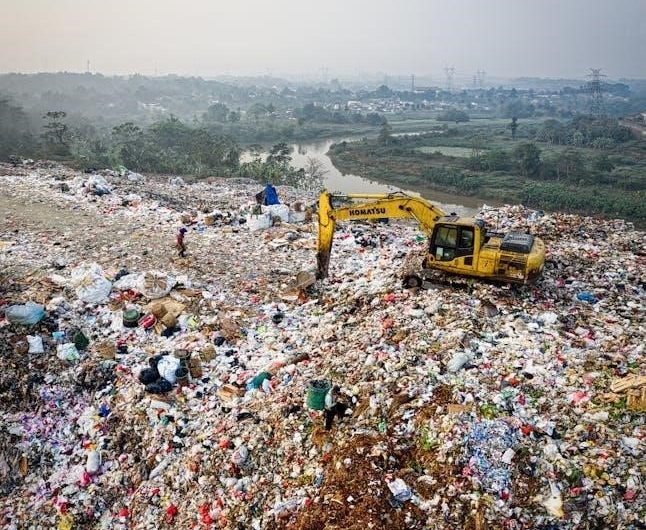 salesforce admin certification dumps 2020 pdf free
salesforce admin certification dumps 2020 pdf free  exercise band workouts pdf
exercise band workouts pdf 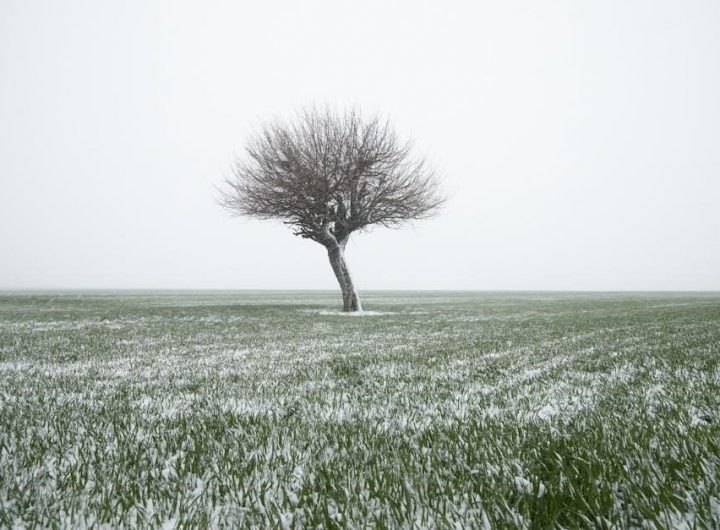 12 days of christmas printable pdf
12 days of christmas printable pdf 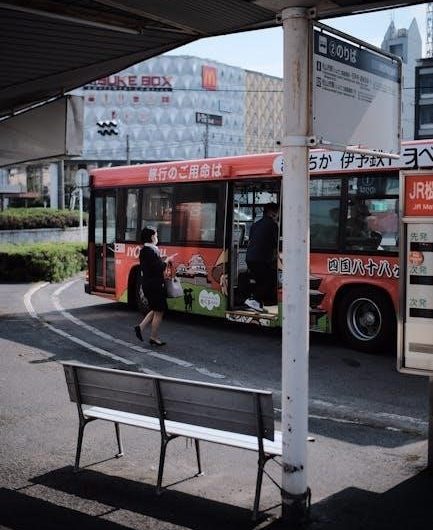 s92 bus schedule pdf
s92 bus schedule pdf  diet plan for breastfeeding mothers to lose weight pdf
diet plan for breastfeeding mothers to lose weight pdf  u.s. coin book pdf
u.s. coin book pdf  amc past papers with answers pdf
amc past papers with answers pdf  tv guide monroe michigan
tv guide monroe michigan